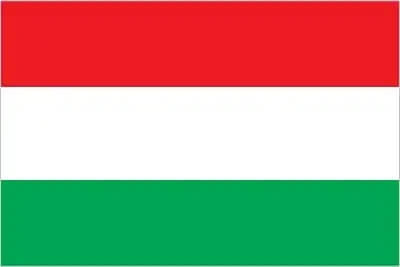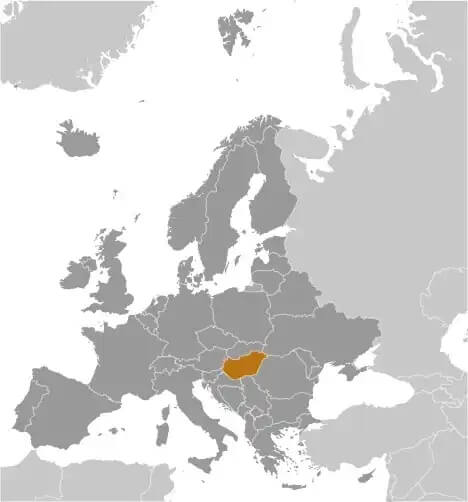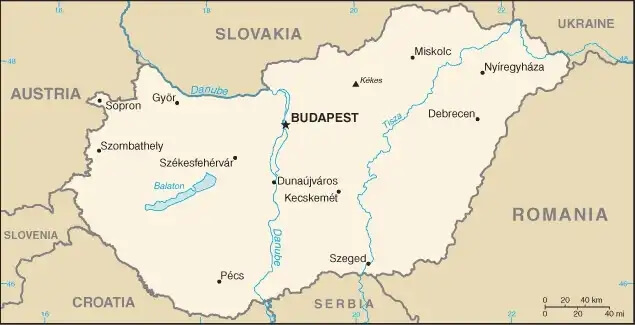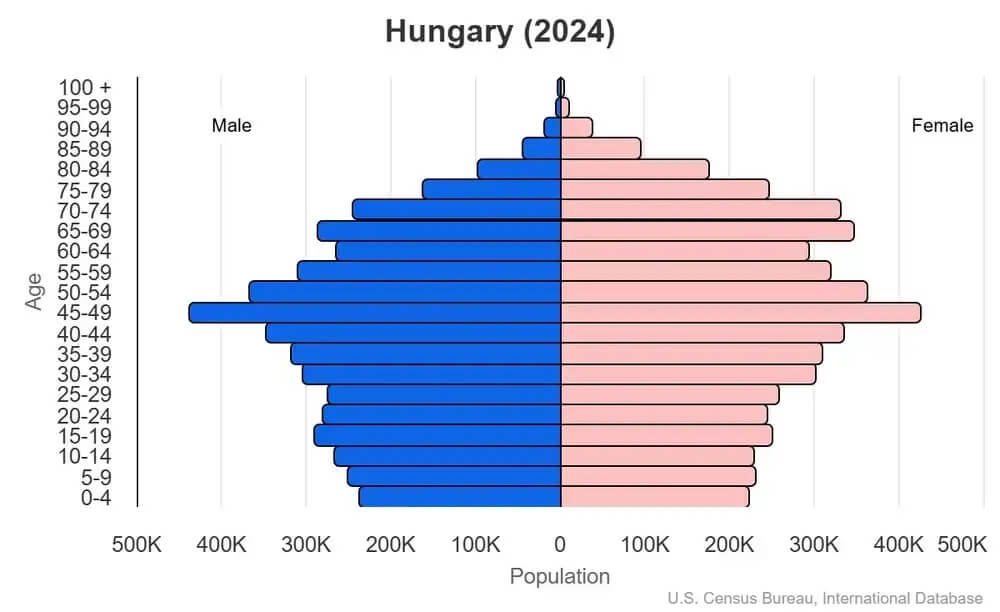World Book
Hungary
World Book Index
75


With a score of 75, the country is ranked 43rd out of 158 countries in the World Book ranking. (more information)
Introduction
Hungary became a Christian kingdom in A.D. 1000 and for many centuries served as a bulwark against Ottoman Turkish expansion in Europe. The country fell under communist rule after World War II. Hungary held its first multiparty elections in 1990 and initiated a free market economy. It joined NATO in 1999 and the EU five years later.
Neighboring countries
Austria - Croatia - Romania - Serbia - Slovakia - Slovenia - Ukraine
Geography
Area
total: 93,028 sq km
land: 89,608 sq km
water: 3,420 sq km
Climate
temperate; cold, cloudy, humid winters; warm summers
Natural resources
bauxite, coal, natural gas, fertile soils, arable land
People and Society
Population
total: 9,855,745 (2024 est.)
Ethnic groups
Hungarian 84.3%, Romani 2.1%, German 1%, other 1.2%, unspecified 13.7% (2022 est.)
Languages
Hungarian (official) 98.8%, English 25.3%, German 12.6%, Russian 2.1%, French 1.5%, Romanian 1.4%, other 5.1% (2022 est.)
Religions
Catholic 30.1% (Roman Catholic 27.5%, Greek Catholic 1.7%, other Catholic 0.9%), Calvinist 9.8%, Lutheran 1.8%, other Christian (includes Orthodox) 1.6%, other 0.4%, none 16.1%, no answer 40.1% (2022 est.)
Population growth rate
-0.28% (2024 est.)
Government
Government type
parliamentary republic
Capital
name: Budapest
Executive branch
chief of state: President Tamas SULYOK (since 5 March 2024)
head of government: Prime Minister Viktor ORBAN (since 29 May 2010)
Diplomatic representation in the US
chief of mission: Ambassador Szabolcs Ferenc TAKÁCS (since 23 December 2020)
Diplomatic representation from the US
chief of mission: Ambassador (vacant); Chargé d’Affaires Robert PALLADINO (since 7 March 2025)
Economy
Economic overview
high-income EU and OECD economy; modest recovery from 2024 recession driven by private consumption and moderated inflation; challenges include high fiscal deficits, frozen access to EU funds, and risks from export reliance; implementing tax exemptions, price controls, and mortgage interest caps ahead of 2026 elections
Real GDP (purchasing power parity)
$389.207 billion (2024 est.)
$387.223 billion (2023 est.)
$390.513 billion (2022 est.)
Real GDP per capita
$40,700 (2024 est.)
$40,400 (2023 est.)
$40,700 (2022 est.)
Exports
$166.503 billion (2024 est.)
$173.034 billion (2023 est.)
$158.98 billion (2022 est.)
Exports - partners
Germany 25%, Italy 6%, Romania 6%, USA 5%, Slovakia 4% (2023)
Exports - commodities
cars, vehicle parts/accessories, electric batteries, packaged medicine, computers (2023)
Imports
$154.077 billion (2024 est.)
$163.192 billion (2023 est.)
$167.262 billion (2022 est.)
Imports - partners
Germany 23%, China 7%, Austria 6%, Poland 6%, S. Korea 6% (2023)
Imports - commodities
vehicle parts/accessories, natural gas, integrated circuits, broadcasting equipment, industrial acids/oils/alcohols (2023)
Human Development Index
The country's Human Development Index (HDI) is 0.870, ranking it 46th out of 193 countries tested. (more information)
World Happiness Report
The World Happiness Report ranked the country 35th out of 158 countries tested with a score of 6.442. (more information)



